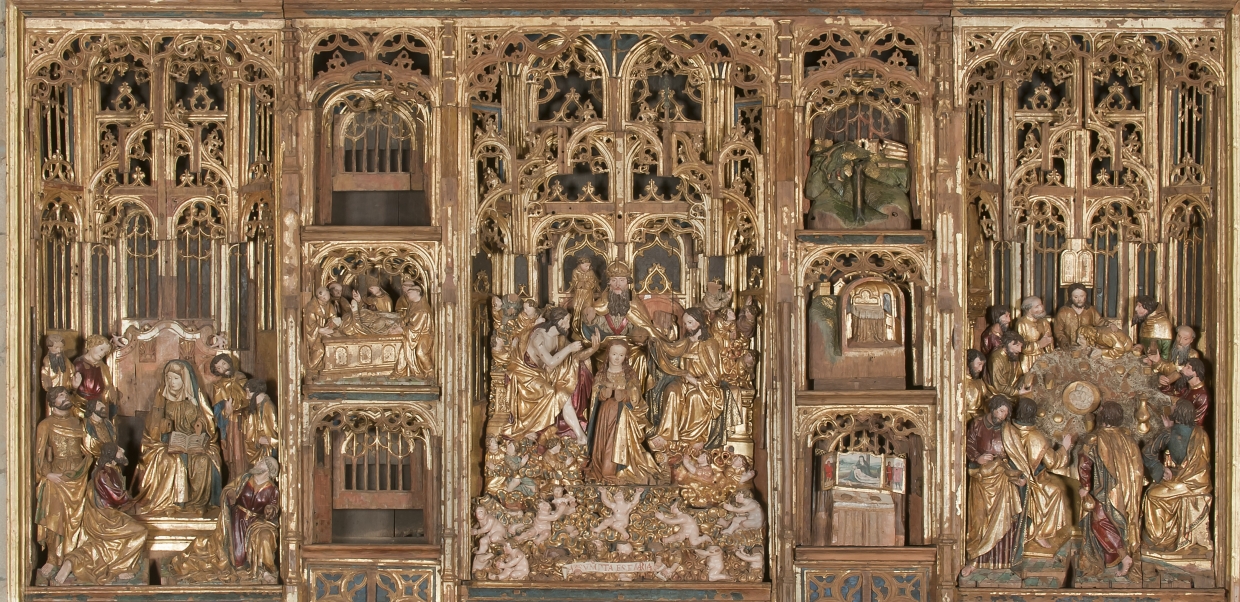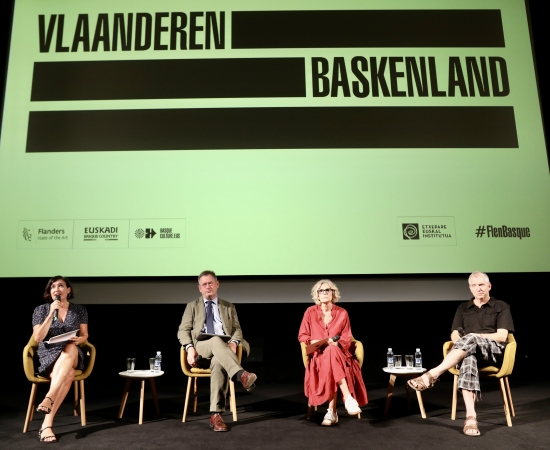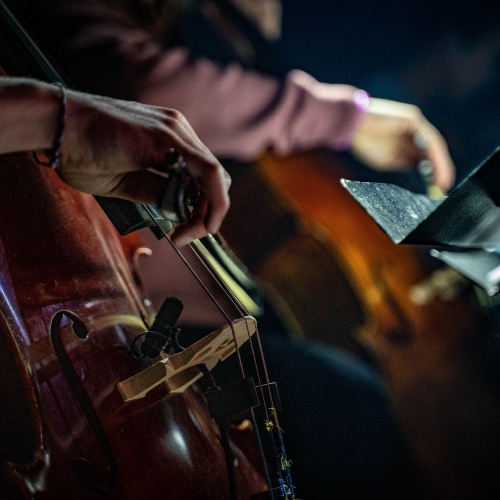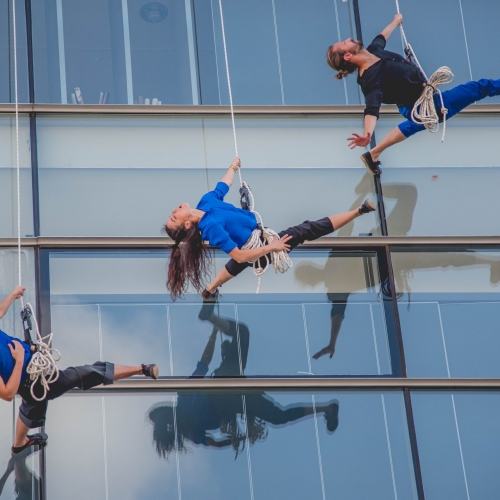Congress: Art Overseas betweeen Flanders and the Basque Country
Euskara. Kultura. Mundura.

ART OVERSEAS BETWEEN FLANDERS AND THE BASQUE COUNTRY
M LEUVEN
LEUVEN
OCTOBER 17-18 (2024)
Understanding art is understanding cultural history. Better than any other form of human communication, art expresses the mental legacy of a culture. When looking at Basque art, we may be struck by the strong mark Flanders has left on it. The common history of both territories came about mainly through a shared space, namely the sea; for centuries, works of art travelled over the water, along with other goods, ideas, languages, people and mentalities. Throughout history, coastal dwellers have turned their gaze across the water to other shores, leading to the formation of new communities. This two-day conference held at M Museum in Leuven will bring art historians and artists together in conversation on how art is a mirror of the cultural exchange between Flanders and the Basque Country.
Download programme (Basque-English-Flemish)
PERSPECTIVES FROM THE SOUTH
THURSDAY 17 OCTOBER
9:00 Registration
9:30 Opening remarks
Irene Larraza, Director of the Etxepare Basque Institute
9:45 -10:00 Presentation of the programme
Justin Kroesen
10:00-10:45 Round trip Flanders-Basque Country: artistic exchange 15th-17th centuries
Maite Barrio / Aintzane Erkizia
Flemish art enjoyed great admiration in the Basque Country between the fifteenth and seventeenth centuries. Basques brought many artworks from Flanders to their homeland, where they are now considered as masterpieces of Basque cultural heritage.
10:45-11:15 Coffee break
11:15-12:00 The Basque Art Canon and Women
Haizea Barcenilla
Basque art of the 20th century is well known internationally, with Chillida and Oteiza as leading figures. However, there were many more artists active in the same period, who will be discussed in this lecture from a gender perspective.
12:00-12:45 ´The Surrender of Breda´ copied
Iratxe Jaio / Klaas van Gorkum
The two artists will talk about three copies of the famous painting by Diego Velázquez in the Prado in Madrid that are now in Breda. Topics that will be considered include the art of copying and its cultural and social meaning.
PERSPECTIVES FROM THE NORTH
FRIDAY 18 OCTOBER
9:30-10:15 A Legendary Professor in the Basque Country: Jan Karel Steppe (1918-2009)
Paul Vandenbroeck
The Leuven Professor Jan Karel Steppe was the first to do research on Flemish art in the Basque Country. He brought many Flemish artworks to light during the 1960s and 1970s, with Paul Vandenbroeck, then a student, accompanying him.
10:15-10:45 Coffee break
10:45-11:30 The International Expansion of the Borman Workshop from Flanders to France, the Basque Country and Elsewhere
Marjan Debaene
The Brussels workshop of the Borman family lasted four generations during the 15th and 16th centuries, producing some of the most prominent sculptors of the Flemish Golden Age. Their works spread all over Europe, including the Basque Country.
11:30-12:00 The Atlantic Link. Maritime Connections Between Flanders and the Basque Country
Justin Kroesen
In the late Middle Ages, Atlantic trade flourished from Iceland down to the Canary Islands, with Flanders and the Basque Country as hubs. This lecture focuses on common aspects found in late medieval church art along Europe’s Atlantic rim.
12:00-12:30 Discussion, concluding remarks and closure
Justin Kroesen
Professor of Cultural History at the university of Bergen (Norway) and research curator of the art collection of its University Museum.
Maite Barrio
Director of Albayalde Conservatio, a heritage research and restoration company. Member of the Basque Cultural Council and consultant for the management and conservation of heritage to Gordailu, Centre for heritage collections in Gipuzkoa Province.
Aintzane Erkizia
Doctor of Art History at the University of the Basque Country. Her main research interest concerns the art of the Basque Country during the late Middle Ages and the Early Modern period (15th-16th centuries), with a particular focus on tabernacles and reliquaries.
Haizea Barcenilla
Doctor of Art History at the University of the Basque Country. Her research addresses museology, curatorship and contemporary art, approached from a gender perspective.
Iratxe Jaio & Klaas van Gorkum
Artists, based in Rotterdam. Their practice could be compared to experimental archaeology: they explore the social meaning of existing objects and documents by method of appropriation and reproduction in a different contexts.
Paul Vandenbroeck
Doctor of Art History, artist and professor emeritus at the University of Leuven. His research moves between art and anthropology, and he developed several exhibitions and other projects in Flemish museums.
Marjan Debaene
Art Historian and specialist on late Gothic Flemish sculpture. She is head curator of Old Masters at the M Museum in Leuven.
Register on this form to attend the congress.
Do you want to learn more about Basque art? Download this book for free.
-

Flanders – Basque Country: 13 projects, 43 activities and over 100 artists and professionals
The conference ‘Art Overseas between Flanders and the Basque Country’ will mark the end of Flanders – Basque Country (Vlaanderen - Baskeland), the bilateral programme of cultural and artistic cooperation that has taken place in both regions in 2023 and 2024.
-

Grants underway to promote technical cooperation with Flanders in 2024
The deadline for applications is 29 January.
-

Flemish and Basque culture come together in Flanders - Euskadi
The aim is to foster collaboration among cultural stakeholders and encourage experimentation and mutual learning in both regions.




